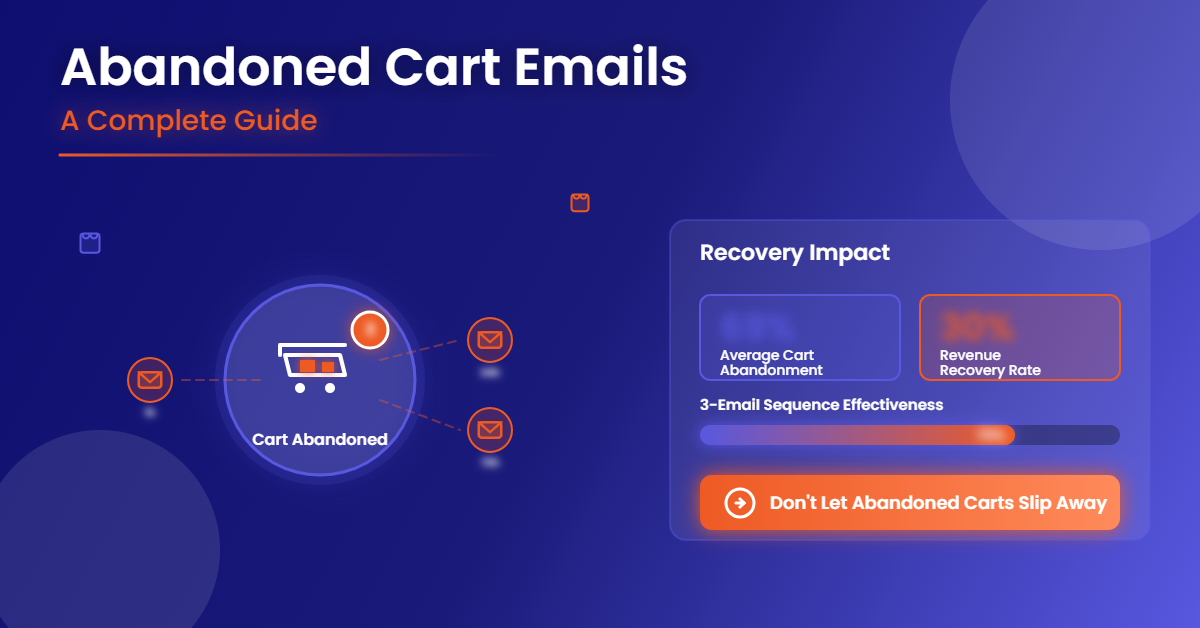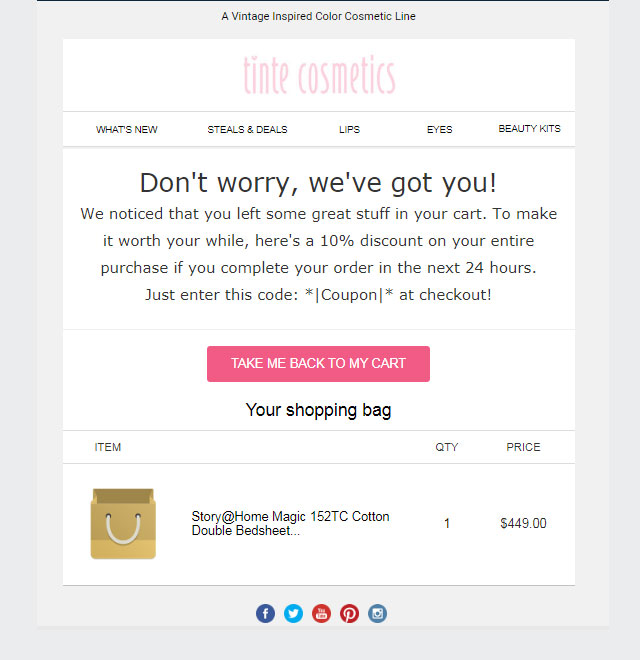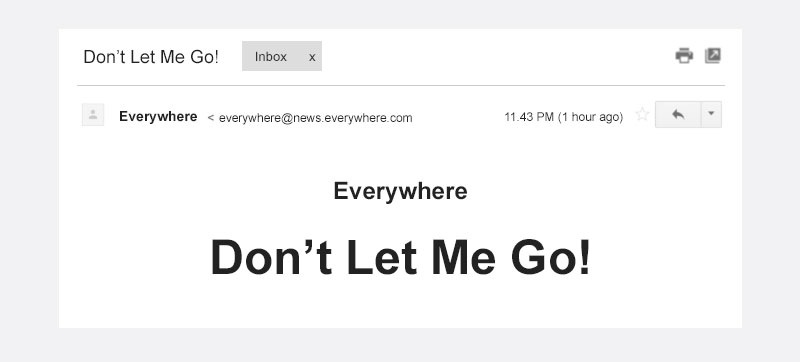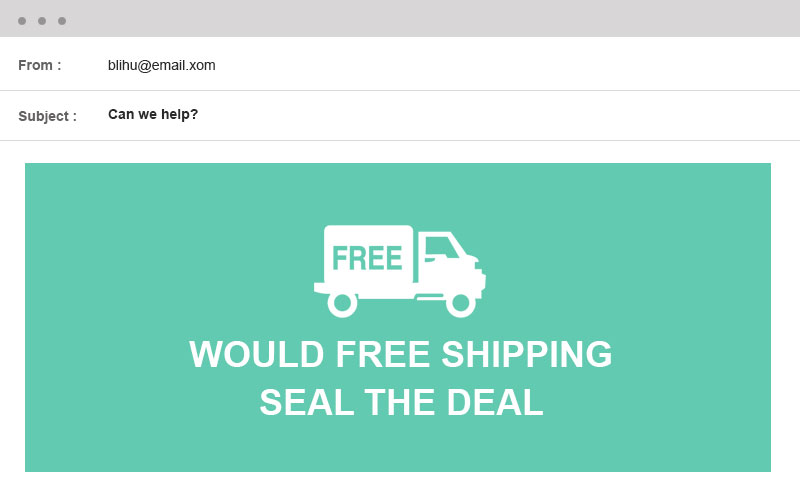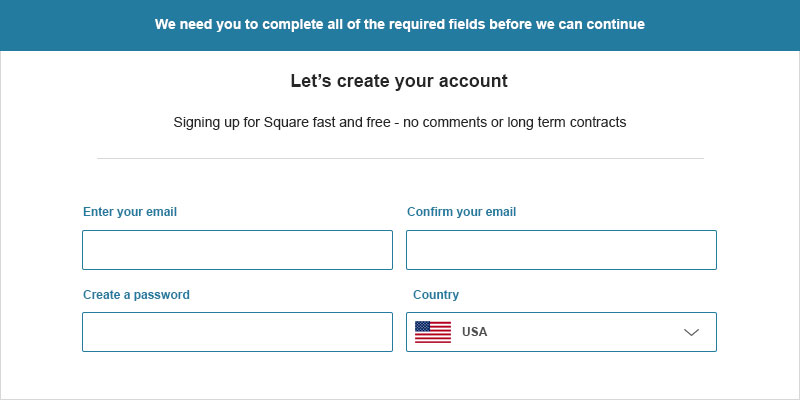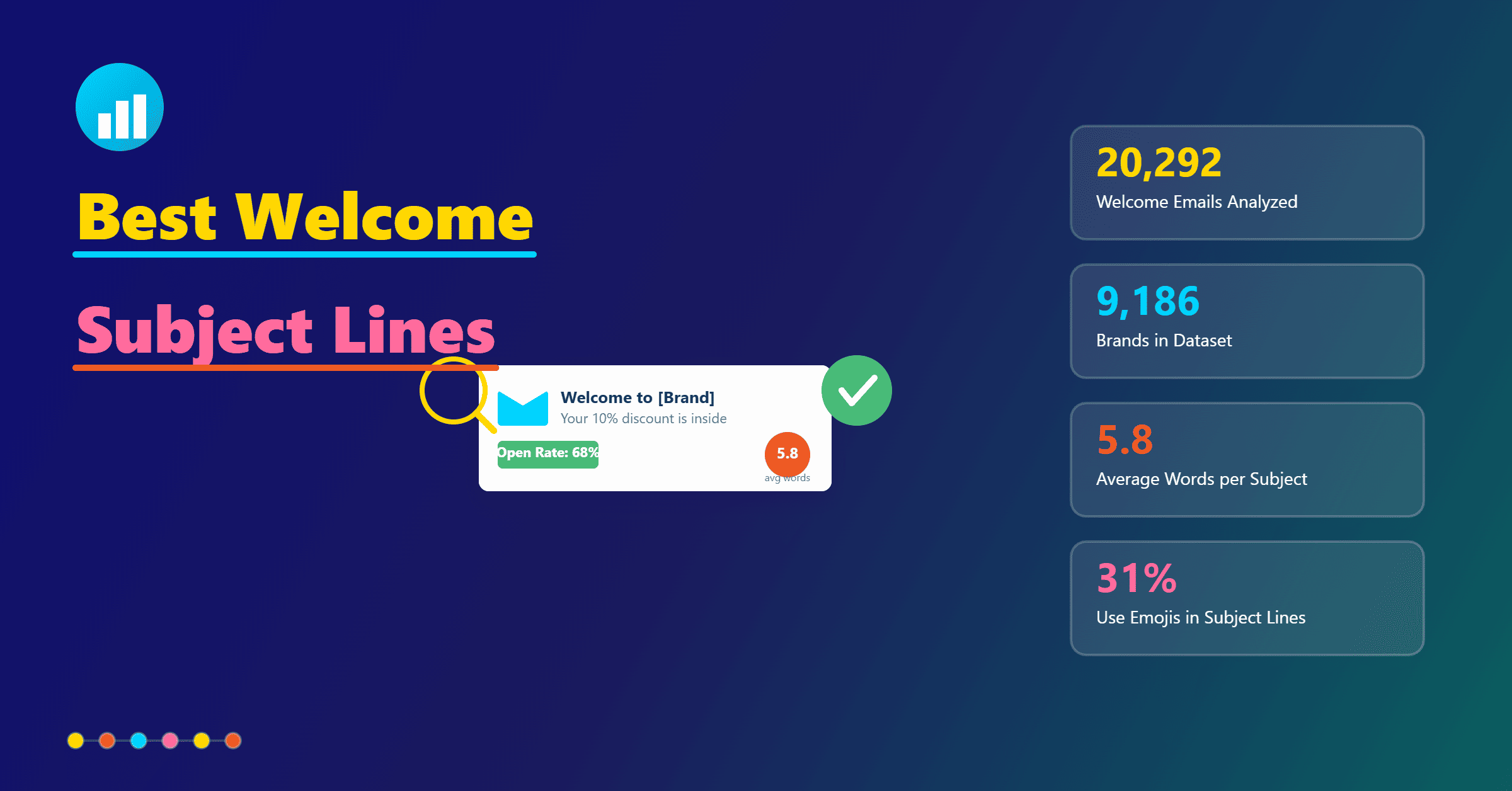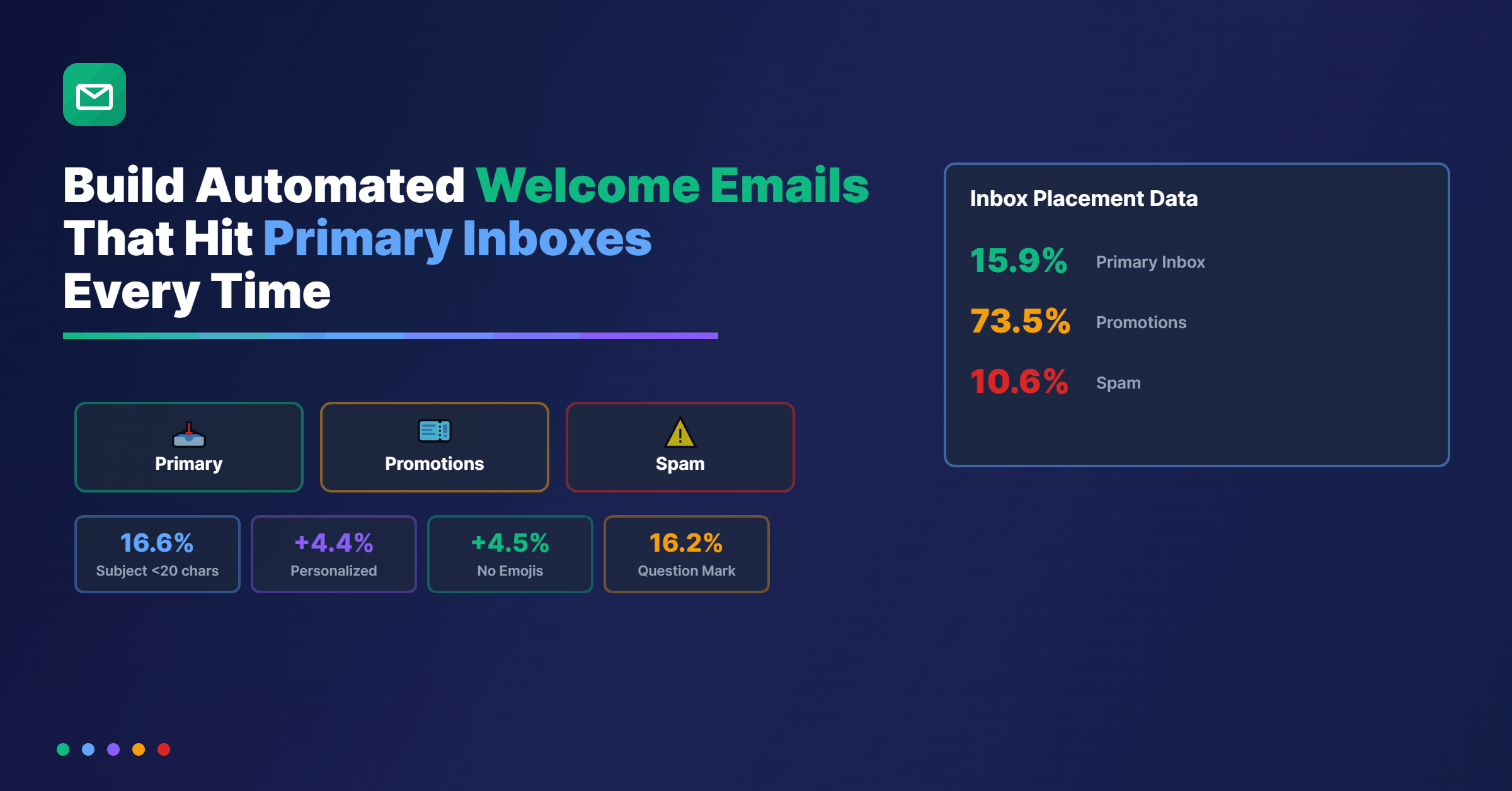Are you facing the dilemma of combatting abandoned carts?
If I tell you that you can vanquish your worst eCommerce nightmare by sending abandoned cart emails, would you believe it?
As of 2021, the average cart abandonment rate worldwide was 75.52%, which implies 3 out of 4 shoppers who add items to their cart failed to complete their purchase.
But, don’t worry, it’s not all bad news.
Referring to my previous argument, you have a massive opportunity to transform these abandoned carts into recovered revenue.
But how?
Extensive studies on the performance of abandoned cart emails found that the average conversion rate for shopping cart abandonment emails in 2021 is 18.64%.
This comprehensive blog intends to cover all the ins and outs of remarketing via email, but before going further into the topic, let’s see what an abandoned cart email actually means and some abandoned cart email examples.
What is an Abandoned Cart Email?
An abandoned cart email is a follow-up email sent to a customer who has added items to his/her cart but exits without completing the purchase.
This is an extremely powerful sales recovery strategy. As claimed by Shopify, nearly half of the Shopify abandoned cart emails sent are opened, while over a third of the clicks lead to purchases back on the website.
Here’s a quick example,
However, retailers must understand that not all shoppers desert their carts intentionally. Sometimes the reason could be something different- like flawed website navigation or a complicated checkout process.
Let’s discuss the latest cart abandonment trends and get into the details of why eCommerce shoppers abandon their carts.
Best Practices For Abandoned Cart Emails:
- Unique and personalized subject lines and preview texts
- A/B test your abandoned cart emails
- Mobile-optimized abandoned cart email templates
- Interesting copy
- Product recommendations
- Send abandoned cart emails in three different intervals
- Clear Call-To-Actions
- Use User-Generated-Content
- Shine the spotlight on the product
- Reliable customer support
- Be specific and clear with your content and layout
These are just the tip of the iceberg to know the best practices for abandoned cart emails, many of which align with broader newsletter best practices like strong subject lines, engaging copy, and clear calls-to-action.
Are Your Visitors Adding Items To The Cart And
Leaving Your Online Store? ????
Bring cart abandoners back to your website with contextual
and well-timed cart abandonment emails.
Latest Cart Abandonment Trends To Watch Out For In January 2023
We crunched some numbers on our databases and also referred to several reliable sources to come up with these cart abandonment stats
Industry-wise Abandoned Cart Stats
- The abandoned cart rate for the retail industry is 77.01%
- And the abandoned cart rate for the fashion industry is 88.43%
- Automotive has the highest abandoned cart rate, with a 96.88%
Metric-wise Abandoned Cart Stats
- In 2021, the average click-through rate for abandoned cart emails is 8.49%
- Checkout optimization can increase conversions by 35.62%.
- 18.64% is the average conversion rate for shopping cart abandonment emails.
- 10.7% of the cart abandonment emails recovered the lost transaction.
- Cart abandonment emails have got over 21% of the click-through rate.
- On average, 49% of cart abandonment emails are opened.
- High bounce rates lead to 69.57% of shopping cart abandonment.
- The average conversion rate across different traffic channels is highest for AOL at 2.9%; the average order value is highest for Twitter at $121.33.
- A 65% cart abandonment leaves a 97.9% gap in conversions. So you are losing out on so many opportunities if you don’t address the abandoned carts.
Cause-wise Abandoned Cart Stats
- Shopping cart abandonment costs e-marketers about 2 to 4 trillion per year.
- The average checkout flow has 23.48 form elements and 14.88 form fields.
- Nearly 40% of people just browsed the page and abandoned their carts. So Abandoned cart emails allow you to get most of them back. Be it your Shopify abandoned cart emails or your Woocommerce abandoned cart emails, with BayEngage, you can see 64 % of cart recovery.
- 40% of the respondents said that the amount of personal information requested made them abandon it.
- 34% have abandoned due to the length of time it took to fill the checkout form, while 18% gave the reason that the language was confusing for them.
- 8 pm-10 pm and 6 pm-8 pm are the peak times when the majority of the shoppers abandon the cart.
- A slow website can increase abandonment by 75%, and loyalty drops by 50% when your site is slow.
- 80% of shoppers will not purchase unless there is a hassle-free return policy.
- About 45% of emails sent to follow up on an abandoned cart are opened by consumers.
- Saturday and Sunday have the highest cart drop-off rates. Nearly 9 out of 10 carts are abandoned during those days.
- Mobile shopping cart abandonment rates are higher than those for desktop carts.
What Causes Shopping Cart Abandonment?
Every e-commerce store is different, but the following are some common reasons for cart abandonment:
- Lack of trust in Payment Mechanism – Modern customers are informed and aren’t always comfortable giving away their credit card info online. The countermeasure is to take actions that build more trust. Add trust badges on the checkout page, and create social proof throughout the site. Having a generous return policy can also help allay customer concerns.
- Unreasonable shipping costs – Customers love surprises, but only when it comes to discounts. Do not upset your shoppers with unexpected shipping and delivery charges. They often abandon shopping carts when they get sticker shock after seeing how much their order costs with shipping. Display all costs upfront; also, offer free shipping promos to counter this scenario.
- Checkout Complexity – Modern-day shoppers have a short attention span and will abandon the checkout flow if it is too complex or time-consuming. Avoid this by making the checkout process as easy and seamless as possible.
- Having to create a new account – Not everyone has the patience to create a new account just to buy something. Customers want to do things quickly and have instant results. Forcing visitors to invest more time and effort than expected is a significant source of friction. 37% of cart abandoners do not complete their purchase when they are required to create a new user account. Providing an alternative option, like guest checkout, will effectively solve this issue.
- Lack of payment options – Customers often have strong preferences of how they would like to pay and only complete a transaction if their preferred method is available. Tackle this problem by offering the most popular payment methods for your target audience.
- Technical problems – Yes, all advancements are susceptible to technical issues and glitches. Make sure you monitor your analytics consistently and do regular reviews of the checkout process to ensure there are no show-stopping bugs. Also, ensure that the code on your checkout page is optimized so there are no long load times.
- The return policy wasn’t satisfactory- Up to 11% of shoppers say that they would spend more with a generous return policy. The solution is simple: offer one.
What To Write In An Abandoned Cart Email
- An interesting subject line
- Introduction text
- Products left in the cart
- A CTA button
- Social proof
- Offer, discount, or a coupon code
- Product suggestions
How Does Abandoned Cart Email Work?
An abandoned cart email is sent to a website visitor who leaves products in the cart and leaves the website without completing the purchase. This action usually triggers it, and it is sent in three different time intervals: 1 after the triggered action, 12 hours after the triggered action, and 24 hours after the triggered action.
It usually reminds the potential customer that they are missing out on a great product with discounts. It nudges the customer when they have second thoughts about buying the product.
The best thing about abandoned cart emails is that it doesn’t sound salesy. It subtly slips into their mind to give them FOMO and increases your chances of sales by 64%!
How to Calculate Shopping Cart Abandonment Rate?
The shopping cart abandonment rate is the percentage of shoppers who add items to their virtual cart but depart without completing the purchase. Put simply, it’s the rate of potential shoppers who leave without buying anything compared to the total number of shopping carts created.
The cart abandonment rate is measured by dividing the completed purchases by the total number of abandoned carts. Subtract the result from 1 and then multiply it with 100.
Let me put it to you this way:
Imagine if you have 50 successful purchases out of 150 carts created. In this case, your shopping cart abandonment rate would be 70%.
1 – (50 / 150) x 100 = 70%
This is how you might view the cart abandonment rate on your eCommerce store dashboard:
The shopping cart abandonment rate helps retailers understand how shoppers behave on their websites and what turns them off. This metric displays your checkout flow’s degree of intuitiveness and how convenient it is while a customer approaches the purchase completion.
While it is useful in this particular context, the cart abandonment rate can sometimes be misleading too. For instance, if you have very few website visitors or online sales, the Shopping Cart Abandonment Rate can’t be of much help- because the data set is too small to reach a confident assumption.
10 Best Abandoned Cart Email Strategies
Having worked with thousands of eCommerce stores, we’ve found some interesting ideas that can help the new-day merchants improve their recovery rate.
Here are some abandoned cart email strategies to nail your next abandoned cart email campaign.
- Subject lines Come First
- Capturing Your Abandoned Shoppers’ Email Addresses
- Write An Email Copy That Sells
- Optimize Your Call-To-Action For Conversion
- Get The Timing And Frequency Right
- Build A Powerful Abandoned Cart Email Series
- Invest In Loyal Customers
- Prioritize The Best-Selling Product In Your Shoppers’ Cart
- Build Trust And Credibility
- Maintain A Long-Term Relationship
Abandoned cart emails are exceptionally effective yet a shockingly underused strategy by even some of the largest online retailers.
Macy’s, Apple, Nordstrom, and the Gap have no existing abandoned cart strategy as of now.
Forget their costly oversight; you have plenty of successful examples to be inspired by.
Tinte Cosmetics skyrocketed its email marketing revenue to about $60k in just 3 months by taking advantage of a targeted abandoned cart email campaign.
They send an immediate reminder email 6 hours after the cart abandonment.
The second email was sent 2 days after the shopper abandoned the cart.
Read the complete case study here.
Now, let’s see how you can create and send an abandoned cart email series that brings back over 40% of your shoppers to your website.
1. Subject Lines Come First
- Promotional Subject Lines With Discounts
- Curiosity-Inducing Subject lines
- Product Shout-Out Subject lines
- Cart Reminder Subject lines
- FOMO Subject lines
- Customer Service Subject lines
Did you know 47% of email recipients open an email based on the subject line?
Speaking more specifically, 45% of emails sent to follow up on an abandoned cart are opened by consumers.
No matter how striking your abandoned cart email is, if the subject line fails to entice the shoppers to open it, you are still circling the drain.
Email open rate is a crucial metric for evaluating the success of abandoned-cart email subject lines.
This is why a high email open rate is considered a sign of a healthy abandoned cart email campaign. Also, make use of a foolproof abandoned cart email strategy to improve your email campaigns
Now, let’s examine different subject line archetypes that retailers use to boost their conversions.
Promotional Subject Lines with Discounts
Incentives work.
Terms such as deal, promotion, and “% off” are all strong trigger words that grab the attention of price-conscious shoppers.
You have to make clear that such customers are getting hooked up with a great deal if they return back and complete the purchase.
Here is an example:
However, one best practice when using a promotional strategy is email suppression. This helps you to track whenever a customer redeems an offer and hence preventing them from exploiting the opportunity again.
Promotional Subject Line Template Examples
-
- Empty your cart with XX% off
- Get me now with an exclusive XX% off
- Catch me before I go! XX% off only for 24 hours
Curiosity-inducing Subject Lines
“Curiosity is the lust of the mind.”
Yes, you heard me right. Rather than pitching a direct and upfront offer, you can pique the shoppers’ interest by tweaking your subject line strategy a little bit.
Take a look at this example from Project:
Curiosity-inducing Subject Line Template Examples
-
-
- You deserve it
- We have something special for you
-
Product Shout-out Subject Lines
Sometimes the best you can do is to get straight to the point.
Product shout-out headlines are direct and clear; at the same time, it addresses the want or needs the customer originally had when they placed the product in their cart.
For example:
Product Shout-out Subject Line Template Examples
-
-
-
- Your [Company Name][Product Name] is tired of waiting for you
- Still can’t let go? Your [Company Name][Product Name] is waiting
-
-
Cart Reminder Subject Lines
I don’t think anyone needs an introduction to this type of email subject line. A reminder subject line is a most common yet very effective approach to remind your fellow shoppers that they have items waiting in their carts.
Reminder email subject lines work based on ‘Assumption Principal’ – where the retailer assumes that the shopper abandons his/her cart because they forgot about it.
Cart Reminder Subject Line Template Examples
-
-
-
-
- Forgot Something?
- Did You Forget Me?
-
-
-
FOMO Subject Lines
Urgency and scarcity are the two most powerful psychological ploys that drive customer actions.
You can try the FOMO approach in three different ways:
-
-
-
-
-
- You can set your cart to expire and create the impression that the shopper needs to complete the purchase now.
- You can create a FOMO strategy around a particular product. (Using words such as limited stock, selling fast, etc.)
- You can offer a discount with a countdown.
-
-
-
-
This is what a FOMO subject line looks like:
FOMO Subject Line [Image]Template Examples
-
-
-
-
-
- Hurry! Your cart is about to expire
- You’ll never get a second chance. Shop now to get 20% off
-
-
-
-
Customer Service Subject Lines
Customer service subject lines aim to address the reasons why the shoppers abandoned their cart.
Customer Service Subject Line Template Examples
-
-
-
-
-
-
- Need help?
- Ask us anything.
-
-
-
-
-
2. Capturing Your Abandoned Shoppers’ Email Addresses
Although forced account creation can cause 34% of shoppers to abandon their checkout, a careful list-building approach can be greatly rewarding to online retailers.
So how do you get your visitors to offer their email addresses even if they don’t complete the checkout procedure?
Exit-intent pop-ups are one of the most convenient and effective ways to optimize your eCommerce store for garnering visitors’ email addresses.
Here’s an example:
Most importantly, a web form shouldn’t be an obstacle between you and important customer actions.
An example of a simple and convenient checkout form could be like this:
Some of the web form design best practices include:
-
-
-
-
-
-
- Mark optional form fields instead of required fields
- Use in-line form validation
- Implement smart defaults using visitors geolocation data
- Use dynamic pop-ups with instructions that appear when a specific field is selected
- Display the progress bar to avoid confusion
-
-
-
-
-
???? Pro Tip
Retailers can utilize Pre-submit tracking to identify high-intent customers in real time. It captures an email address as soon as the customer enters it on your checkout form, even if they don’t complete the form.
3. Write an Email Copy that Sells
Your emails are alive. They communicate with your customers. So make sure that they aren’t boring. Starting from amazing abandoned cart email templates to its email copy.
A great email copy interacts with the shopper and convinces them to bounce back to his/her cart and complete the purchase.
Below given is an example of a catchy abandoned cart email copy:
Here are some things to remember when you create an email copy for your abandoned cart shoppers.
-
-
-
-
-
-
- Be creative with the email preview text (Often, this shows part of the first line of the email)
- Get personal: Use the customer’s name in the subject line
- Get to know your audience and deliver the copy that resonates with their personality
- Have the goal in your mind while creating the copy
- Use sensory words in your abandoned cart email copy
- Use psychology while writing a marketing email copy (for instance, FOMO, user-generated content, etc)
- Use simple or detailed product images along with your email copy
- A/B test your email copy
-
-
-
-
-
4. Optimize Your Call-to-action for Conversion
Your call to action, or CTA, is arguably the most important part of your copy. Your CTA leads the shoppers through the sales funnel and gives them clear instructions about what to perform next.
In brief, CTAs are the key to transforming shoppers into valuable customers.
However, when it comes to cart recovery emails, using low-commitment CTAs is considered to be a best practice for abandoned cart emails– because asking your shoppers to purchase something is the highest commitment you can ask for.
Therefore, rather than using the term ‘buy’ in your email CTAs, you can rephrase it and thus reduce the scope of commitment.
For instance, you could ask readers to “Return to Cart,” as shown in the example below.
5. Get the Timing and Frequency Right
While creating an abandoned cart email is one thing, sending it is a totally different ball game.
According to the studies published by Experian, it is 2.4 times more likely that eCommerce customers who receive multiple abandoned shopping cart emails will complete the purchase compared to those who receive only one follow-up email.
Also, the customers who received more than a single abandoned cart email have a multiple transaction rate 44 percent higher than those who didn’t.
Here is how your abandoned cart email sequence should look like:
-
-
-
-
-
-
- Email 1: 40-60 minutes after the cart is abandoned
- Email 2: 24 hours after the cart is abandoned
- Email 3: 3 or 4 days after the cart is abandoned
- Email 4 (Optional): 2 weeks after the cart abandonment- This email should focus more on offering alternate product suggestions rather than recovering the cart
-
-
-
-
-
For purchases with more value, you should consider a slightly different approach:
-
-
-
-
-
-
- Email 1: 20-30 minutes after the cart abandonment
- Email 2: 3 or 4 days after the cart abandonment
- Email 3: 2 weeks after the cart abandonment
- Email 4 (Optional): 1-2 weeks after sending the 3rd email- Should focus on re-engaging the shoppers rather than cart recovery
-
-
-
-
-
6. Build a Powerful Abandoned Cart Email Series
The reason why sending an automated abandoned cart series is preferable is that it gives retailers the opportunity to explore different psychological aspects of the shoppers- through creating an urgency, suggesting related products, or showcasing how other customers feel about the product or the brand.
Here are some very effective abandoned cart emails based on their position in the email sequence:
- Email 1: 40-60 minutes after the cart has abandoned
- Email 2: 24 hours after the cart is abandoned
- Email 3: 3 or 4 days after the cart is abandoned
- Email 4: 2 weeks after the cart abandonment
Email 1: 40-60 minutes after the cart has abandoned
The notion of sending an email to the shopper soon after he/she abandons the cart is widely accepted among retailers because such emails act as a strong reminder.
Here is an example of a cart reminder email:
If the first email didn’t do any wonders, you must create some urgency by sending out the second abandoned cart email. But your email doesn’t need to alarm bells at this point.
Your 3rd email is going to test the shopper’s interest in the product he/she abandoned. You can achieve this by saying something like ‘ I’m almost gone’ or ‘Your cart is expiring soon.’
At this point, you are more interested in bringing back your shopper to the website- assuming that they are still interested in the products you deal in.
An example email will look similar to this:
7. Invest in Loyal Customers
You might already know this: Offering discount coupons is one of the most prevalent strategies to recover abandoned carts.
Yes, that’s true. Everyone loves a good deal.
But, the problem here is this is such a popular tactic now, and most of the shoppers expect it.
Besides, discounts, in the long run, diminish your profit margin. In fact, regular discounting devalues your product value.
One way to prevent this is by investing in your most loyal customers.
Here are some ways to implement this effectively:
-
-
-
-
-
-
- Calculate your ‘Average Order Value.’ To find your AOV, divide the total revenue by the total number of orders. Let’s assume it’s $200.
- Based on your AOV, decide how many loyalty points a shopper requires to get at least a 10% off. For instance, 250 points = 10% off.
- Create a separate customer segment for customers who have loyalty points of more than 250.
- Set up a different email campaign for such shoppers- saying that they have loyalty points that they could apply to this purchase to get 10% off.
-
-
-
-
-
The email campaign for your loyal customers should look like this:
Let’s assume that a customer added 5 similar products to the cart and exited before completing the checkout. In this case, it is safe to assume that the shopper doesn’t have the same purchase intent for all those 5 products.
Here, rather than trying to create an email copy that showcases all the abandoned items in the cart, you can focus on one product, probably the highest-rated one.
Let’s see how you can implement this:
-
-
-
-
-
-
- Use data analytics tools and your marketing intuition to find the right product to focus on. Showcase the best-selling product in the cart and craft your cart recovery email around it.
- Highlight some of the primary features of the product. Include the unique value proposition of the product in the email.
- Add some objectivity to the email by incorporating popular customer reviews of the product.
-
-
-
-
-
9. Build Trust and Credibility
Believe me when I say trust and credibility convert. Millennial shoppers are informed yet confused by the abundance of choices they have at their fingertips.
So, how do you showcase trust and credibility through best-abandoned cart emails?
Well, user-generated content is the best way to earn your customers’ trust.
Reviews and ratings influence 88% of customers’ purchase decisions.
Customer testimonial has huge potential, it can even convert the most skeptical customers into potential buyers.
When today’s retailers are more fixated on instant conversions, they overlook the power of long-term customer relationships.
As email marketers, we’ve always considered a smaller but engaging list more valuable and effective than a bigger, disengaged list.
Sending out email templates to the customers who have consented to be on your mailing list is the best way to ensure a high conversion rate.
Yes, sometimes your abandoned cart emails can annoy your customers.
Maybe he/she is not ready to purchase now, or they might need some more time to think about it. As a retailer, you should respect that.
However, it doesn’t mean that you should cut ties with them.
Yes, you can email them about that cart; however, after a couple of emails about this, you can’t send emails to that customer again without their consent.
But don’t worry, there is always a way.
You can include a final email to your abandoned cart email sequence- asking them to subscribe to your mailing list.
This way, you can set up another email campaign for such shoppers and send newsletters or industry insights at regular intervals.
Best Abandoned Cart Email Examples:
As we have already mentioned, an abandoned cart email should nudge your potential customer into buying the product they added to the cart.
Here are a couple of best-abandoned carts email examples that used simple tricks to attract customers to complete their purchases.
# Cart Recovery Email: Forever 21
Forever 21 has rightly used the FOMO effect in their cart recovery email. And we love it!
They have subtly reminded the subscriber of the product left behind. They have also used a timer to gently push the customer into going back to their cart. They have also reassured the customer that the product is safe with them, and this shows that they have made an effort to save the product for them exclusively!
This is how you personalize your product and also build a relationship with your customers! And that’s why we consider this as one of the best-abandoned cart email examples.
# Cart Recovery Email: Barkbox
Let’s be honest; if you are a pet owner, wouldn’t you think that this is the cutest abandoned cart email? And we do too!
This is hands down the best-abandoned cart email example for a pet store. It speaks to the customer on a personal level, and the copy of the abandoned cart email is considerate. It says that they are ready to replace the item if their pet doesn’t ‘ruv’ it!
This achieves three things in one email: customer loyalty, trust, and increased sales.
# Cart Recovery Email: Dollar Shave Club
The reason we love this best-abandoned cart email example is it lists out the benefits of making a purchase with them: free shipping, guaranteed replacement, no added fee, and delivery in 2 to 3 days. And we don’t even have to talk about the visuals, do we? It spectacularly displays the products in a visually appealing manner.
Overall, this best-abandoned cart email example will not fail to get back the customers!
5 Finest Abandoned Cart Email Templates to Crush Your Cart Recovery Goals
Having trouble building abandoned cart email templates? Here are some amazing free email templates to help you step up your email marketing game.
Before You Go
It’s human nature to explore or probe before making a commitment. You can’t deny the millennial shoppers from doing that. There exists no technology, Shopify plug-in, or perfectly optimized online shopping cart in the world that can eliminate it. Retailers must accept the fact that cart abandonment is an inevitable part of the eCommerce buying cycle and start perceiving it as a potential possibility for conversion rate optimization.
So What Is BayEngage And Why Do You Need To Combat Abandoned Cart?
BayEngage is an Abandoned cart software by TargetBay. It has everything that you are looking for in your email marketing.
- BayEngage has over 60 abandoned cart email templates if you are an Ecommerce store owner.
- BayEngage has direct integration with Shopify and WooCommerce. So if you are a Shopify or WooCommerce store owner, you get to send highly targeted Shopify abandoned cart emails, and WooCommerce abandoned cart emails with our one-click integration.
- Get access to over a million stock images.
- BayEngage’s drag-and-drop editor makes editing easier than ever before.
- Set up email automation for abandoned cart emails. So you just have to sit back, relax and let your automated cart recovery emails do all the work for you!
- BayEngage is budget-friendly. Its prices are not calculated by the number of emails sent but by the number of subscribers. Check its pricing! You’ll be surprised.
- It’s easy to use. It has features that help beginner marketers and also advanced features like UTM parameters that are helpful for advanced marketers.
- It gives precise data on the performance of your abandoned cart emails.


